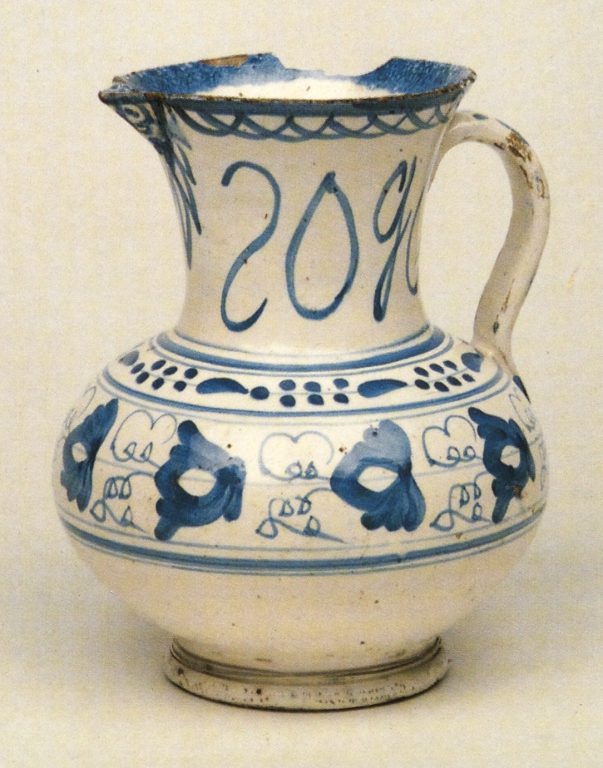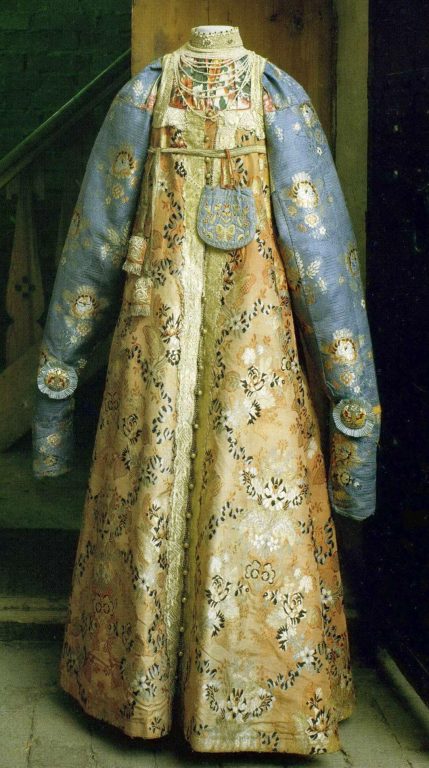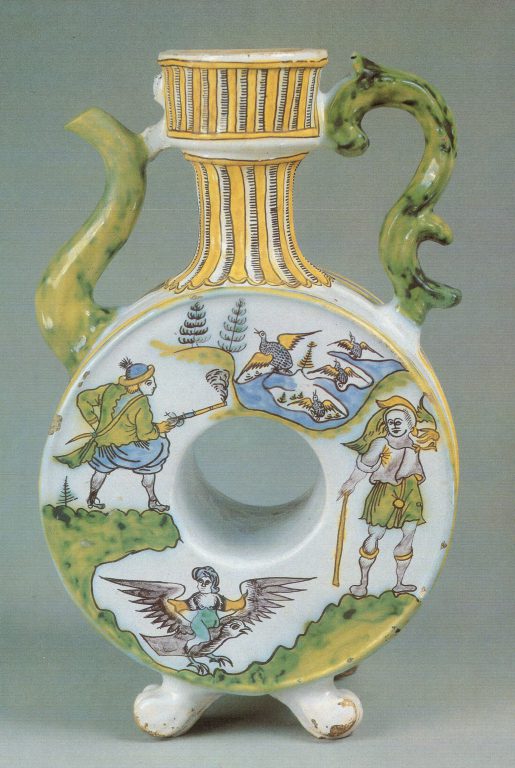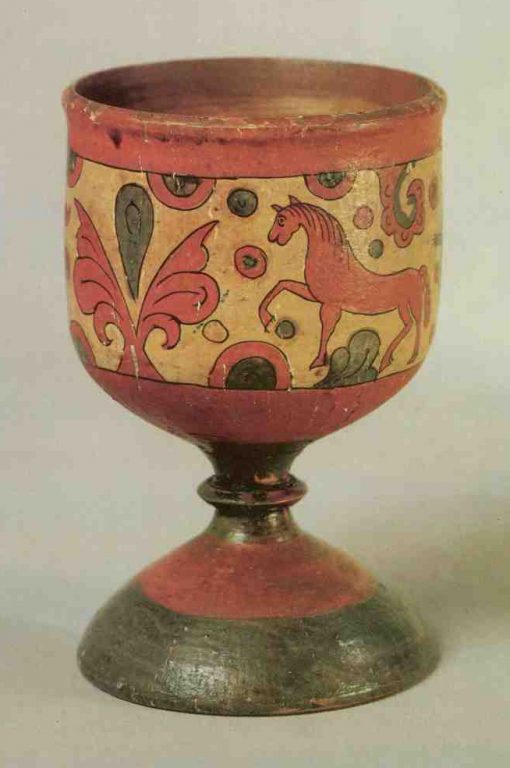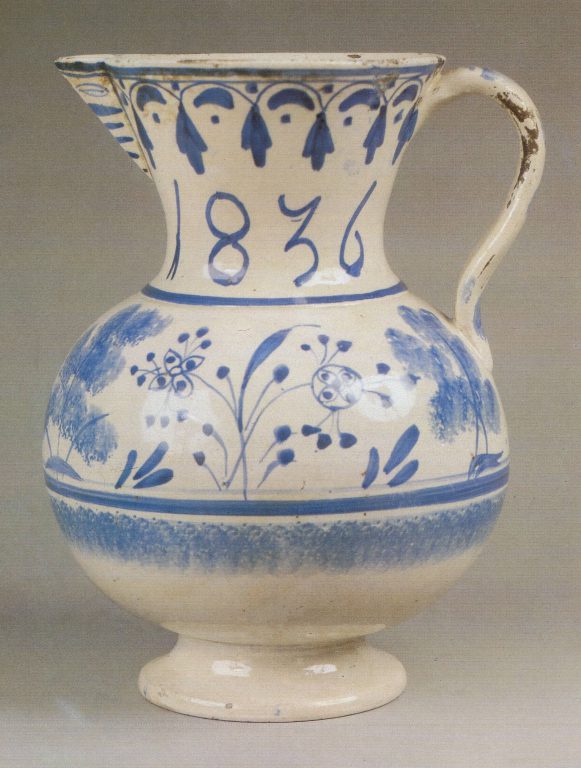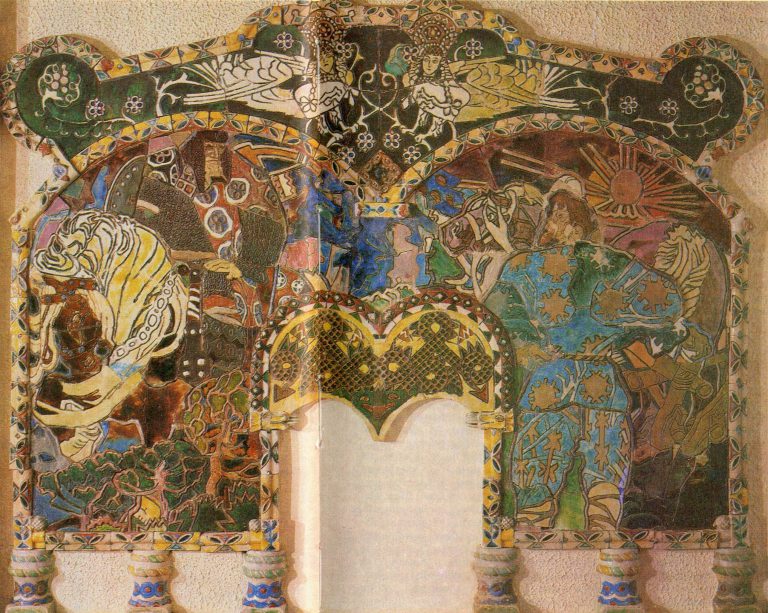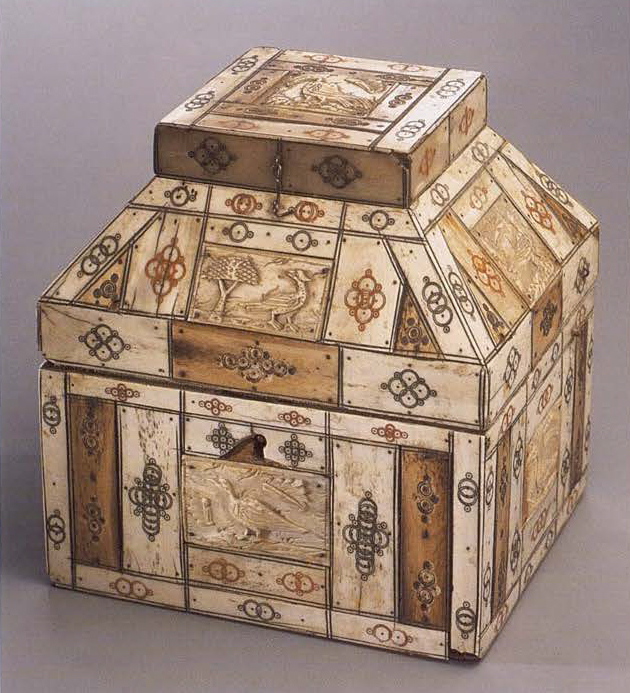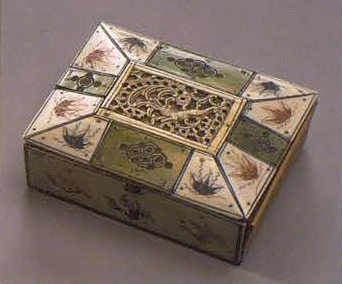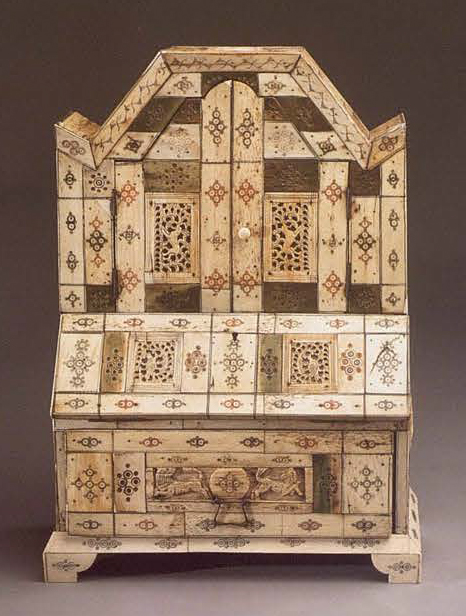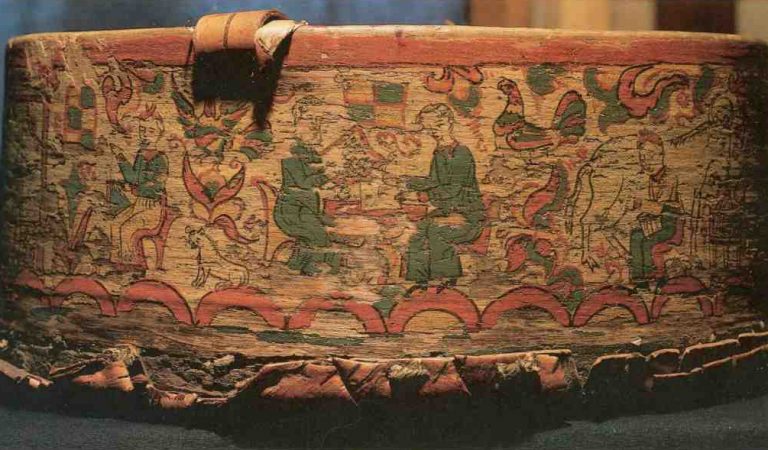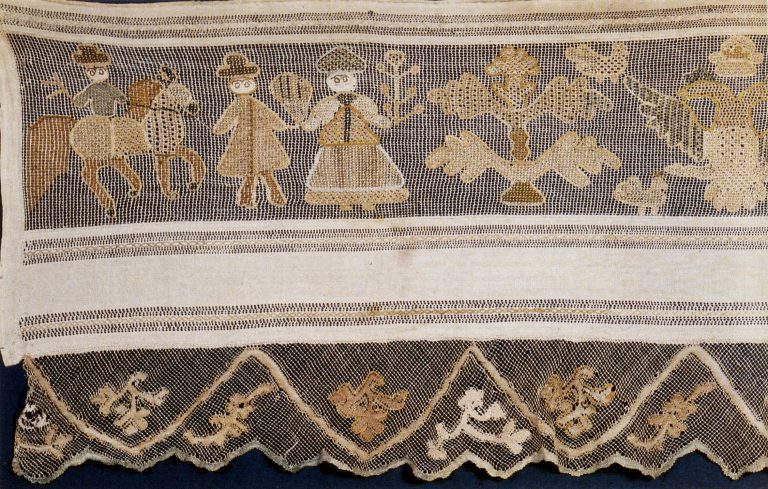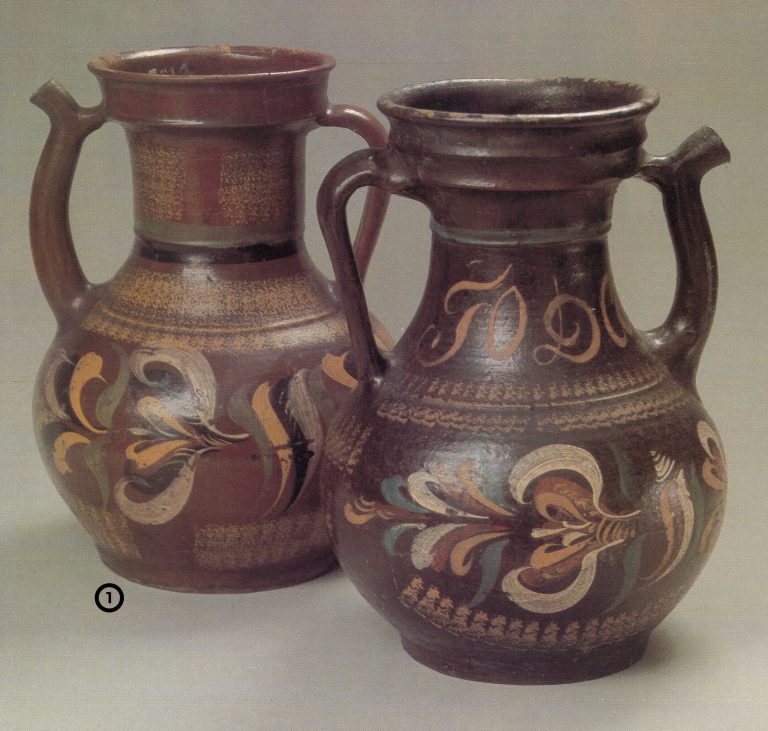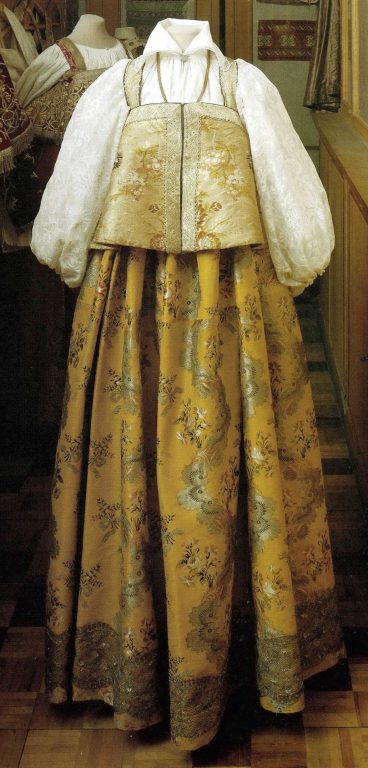

Ramensky district,
Ramensky region
-
Object
-
Type of arts & crafts
-
Technique
-
MediumSemifaience
-
Geography details
Village Gzhel,
Ramensky district,
Ramensky region -
Federal region today
-
Federal subject today
-
DateLate 18th mid 19th centuries
-
Composition
-
Elements
-
Type of sourcephoto album “Gzhel. Ceramics of the 18th–19th Centuries. Ceramics of the 20th Century”
Author(s) T. Astrakhantseva, T. Dulkina, N. Grigorieva
-
Semifaience of Gzhel pitchers was as near-white as faience and china, shape and decoration were not copied. Floral design of Gzhel pitchers composed of several locked horizontal tiers, not infrequently with conspicuous, central frieze-like pattern. In the décor of Gzhel pitchers may single out a garland of leaves that was common in the design on articles produced between the 1820s and early 1840s. The leaves were trifoliolate or pentafoliolate. One specific element of the semifaience pitcher should necessarily be noted, namely the spout, the vessel’s sole geometrized element. Triangular, it was ever “humanized” by introducing eyes in order to accentuate the nose-like shape, an observation made by noted Russian folk arts and handicrafts scholar Alexander Saltykov, who was the first to really research the history and manufacture of Gzhel ceramics.


